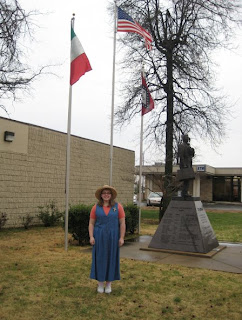But be
That's a famous couplet up there and you should know it. Read the whole poem here and take a look at this poetry site. I'm currently in Poetry now and one of our in-class assignments was to discuss the "Art of Poetry" as we experience or relate to it. I wrote this:
Ultimately, poetry is a recognition and tribute to the senses. The difficulty here arises in the complexity of our senses, for they are indubitably fallible and incomprehensible. Even the body expressing said sentiments cannot understand them fully; therefore poetry becomes instantly a very philosophical endeavor with regards to the common dilemma (or beauty, really) of the impossible and the necessary.
Impossibility lies within our handicaps with language. If it may occur (which it certainly does) that the poet's own self cannot fully understand what is expressed, or express what is believed to be understood, there exists no way completely correct or incorrect to approach, create, and decipher poetry. There are, however, very bothersome techniques in regards to this impossibility--readers who attempt analyses beyond the point of sentiment, beyond the point of meaning. The ambiguity already present within the writer is immediately transferred to the reader, though it may arguably take a different form of presentation. In this thought, each work becomes a singular item provoking a collection of varying associations and meanings, impossible to understand or chart. The comfort in this impossibility, I find, is that I do not approach poems seeking understanding. On the contrary, I rather enjoy the mystery of words and their arrangements without particular and rigorous dissecting for meaning. These words, and the poems themselves (and could we not extend to consider the lives of the authors as well?), are inherently meaningful. Arguably, they may also be meaningless. Who decides and why should they?
The necessity occurs within this query of decision and analysis. If we are to study poetry we must be aware, to an extent, of the author's intents or some other reference for contextualism. (Though, this has ofttimes 'ruined' the significance of a poem for me [see Whitman's historical bit...I rather liked it without the historical implications] for me on a sensational level.) I do not think it wholly necessary to remove a poem from its sensations; in truth the act is rather impossible. We must, however, admit, for the sake of study, that the focus cannot remain completely upon sensation lest the political, social, activist, &c. type messages be lost or less powerful without some sort of contextualization within history. (Of course I'm aware there are theories about this but I'm far too lazy for that can of worms.)
The art of poetry is, finally, a reconciliation of sensation and intent. This proves difficult and suggests possibly an inevitable loss of meaning. Poetry embodies the beautifully humbling attempts to express and describe emotional and significant sensations that may be placed in a context of relevance to readers.
Well, that's what I gave my professor after 10 minutes of free writing. I'm much too lazy to expand upon this or proofread it. Mary's response:
"Rigorously explained, deeply lived...starting with experiences of the senses rather than ideas. Certainly hits me where I live."
I don't know. That's just what she said.






 Now, on the way, we were, unsurprisingly, trafficking drugs. This simple and easily expected fact shouldn't shock any of you. I mean, the Springdale police were very convinced. After being pulled over for the mortal sin of following too closely (we transgressed because unfortunately at this time we weren't wearing the magic dress of obedience), it is only natural for the extremely eager police of Springdale to assume that we were, in fact, hiding a kilo in our Girl Scout tents. The police were very thourough, with a search lasting quite some time. We were extrememly suspicious travellers, with an apparently overcomplicated story and "no specific destination." Now, who really wants to take the time to explain this story to a policeman: "Oh, hello, officer. You see, I'm from Tennessee, she from Texas. How do we know each other? Well, we work at a summer camp in Missouri. Where are we coming from? Memphis. No, neither of us live there, but we were visiting Grandma. No, no, we aren't planning to go to any clubs. What is in Springdale? Ummm....welll...... (At this point the officer stuck his head in to look around and inevitably saw the wonderful literature,
Now, on the way, we were, unsurprisingly, trafficking drugs. This simple and easily expected fact shouldn't shock any of you. I mean, the Springdale police were very convinced. After being pulled over for the mortal sin of following too closely (we transgressed because unfortunately at this time we weren't wearing the magic dress of obedience), it is only natural for the extremely eager police of Springdale to assume that we were, in fact, hiding a kilo in our Girl Scout tents. The police were very thourough, with a search lasting quite some time. We were extrememly suspicious travellers, with an apparently overcomplicated story and "no specific destination." Now, who really wants to take the time to explain this story to a policeman: "Oh, hello, officer. You see, I'm from Tennessee, she from Texas. How do we know each other? Well, we work at a summer camp in Missouri. Where are we coming from? Memphis. No, neither of us live there, but we were visiting Grandma. No, no, we aren't planning to go to any clubs. What is in Springdale? Ummm....welll...... (At this point the officer stuck his head in to look around and inevitably saw the wonderful literature,















